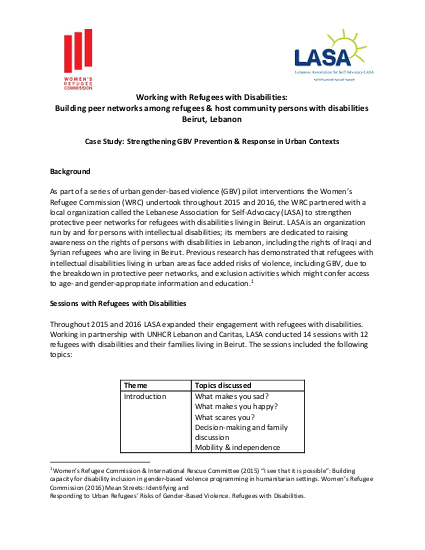Case Study: Strengthening GBV Prevention & Response in Urban Contexts

Previous research has demonstrated that refugees with intellectual disabilities living in urban areas face added risks of violence, including GBV, due to the breakdown in protective peer networks, and exclusion activities which might confer access to age- and gender-appropriate information and education. Throughout 2015 and 2016, the WRC partnered with a local organization called the Lebanese Association for Self-Advocacy (LASA) to strengthen protective peer networks for refugees with disabilities living in Beirut. Sessions supported refugees with disabilities living in Beirut to reflect on safety issues, including how these might be different for women, men, girls and boys with disabilities, as well as how these might relate to nationality/country of origin. These sessions also helped to strengthen their protective peer networks in the community.
Links
Resource collections
- UN Habitat - Urban Response Collection
- Urban Response - Urban Crisis Preparedness and Risk Reduction
- Urban Response Collection - Community Engagement and Social Cohesion
- Urban Response Collection - Economic Recovery
- Urban Response Collection - Environment and Climate Change
- Urban Response Collection - Housing, Land and Property
- Urban Response Collection - Urban Crisis Response, Recovery and Reconstruction
- Urban Response Collection - Urban Resilience